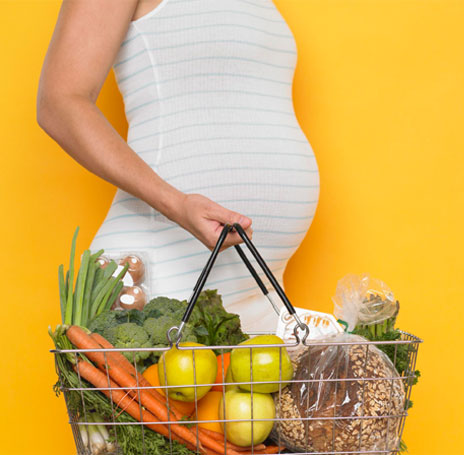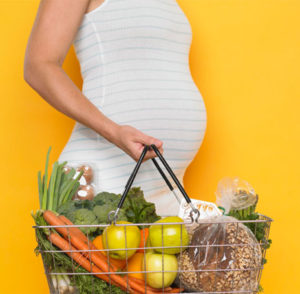It is essential to a rich and balanced diet in pregnancy because it depends on the correct development of the fetus. The contribution of certain foods varies throughout gestation, and increases the need for folic acid and vitamins A, B, C and D. In the second and third trimester are necessary protein intake, iodine, iron and calcium.
During pregnancy is very important maternal weight control to prevent disease (gestational diabetes) and birth complications (large fetus).
It is recommended that 5 or 6 meals a day but in small quantities, so we prevent upset stomach and low blood sugar, which are very common in pregnancy because the fetus needs glucose continuously.
Fruits: Two or three fruits per day, better unpeeled and scrubbed.
Vegetables: Help regulate the bowel because of its high fiber content.
Eggs: Four per week.
Bread, Rice and Pasta: Preferably that are comprehensive.
Meat: Once a day roast or grilled. Do not eat raw or undercooked.
Fish: You can take every day, well done, never raw.
Sausages and Pate: It is unwise.
Sugar: Limit consumption.
Oils: olive oil preferably.
Nuts: Consumption limited by the calories it has.
Fluids: Drink at least 8 glasses of water a day, juice, etc..
Dairy: Eat 2 to 4 servings per day by the calcium that is as it is very important for skeletal development of the child.
Caffeine: Avoid it (coffee, colas, chocolate).

